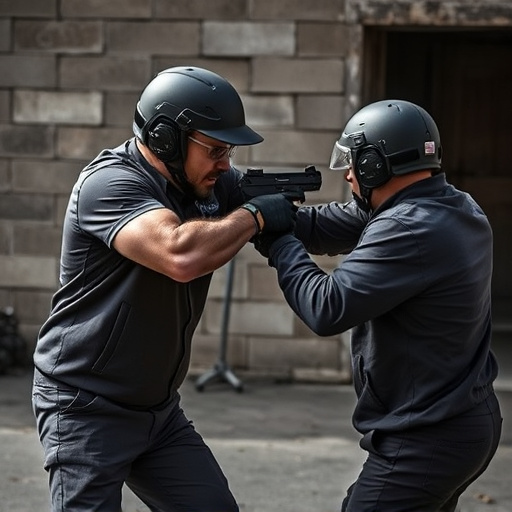Altitude significantly affects pepper spray performance due to reduced air pressure, impacting particle speed and dispersion. Higher elevations may diminish spray's range and effectiveness. High-altitude environments require specialized pepper sprays designed for enhanced penetration and longer-lasting effects under unique conditions.
“In today’s world, understanding personal protection against inflammatory agents is crucial, especially when considering altitude’s impact on spray range and effectiveness. Pepper spray, a common self-defense tool, behaves differently at varying heights, affecting its user’s safety and the level of protection it provides. This article delves into the science behind inflammatory agents in pepper spray and explores specific strategies for personal protection in high-altitude situations, shedding light on the altitude effects on pepper spray.”
- Understanding Inflammatory Agents in Pepper Spray
- Altitude's Impact on Spray Range and Effectiveness
- Personal Protection Strategies for High-Altitude Situations
Understanding Inflammatory Agents in Pepper Spray
Inflammatory agents, commonly found in pepper spray, are substances designed to induce a painful and temporarily disabling reaction when exposed to the eyes or respiratory system. These agents work by disrupting normal cellular functions, leading to inflammation and irritation. Understanding how these chemicals interact with the human body is crucial, especially considering factors like altitude can significantly impact their effectiveness.
At higher altitudes, where air pressure decreases, pepper spray’s performance may change. The reduced atmospheric pressure can alter the concentration and delivery of inflammatory agents, potentially affecting their potency. This phenomenon is particularly relevant for outdoor activities or situations involving varying elevations, as it underscores the importance of choosing pepper spray formulated to maintain efficacy under different environmental conditions.
Altitude's Impact on Spray Range and Effectiveness
Altitude, or how high above sea level you are, significantly influences the range and effectiveness of a personal protection spray like pepper spray. As elevation increases, air pressure decreases, leading to reduced molecular density. This change in density affects the speed and distance at which spray particles travel. At higher altitudes, the range of a pepper spray can be notably shorter compared to lower elevations due to this decrease in air pressure.
Additionally, temperature variations with altitude can impact the viscosity and dispersion of the spray solution. Cooler temperatures can make the spray more viscous, potentially affecting its distribution and reaching targets at a distance. Conversely, warmer altitudes may cause some pepper sprays to evaporate or disperse too quickly, reducing their concentration over longer ranges. These factors underscore the importance of understanding your environment’s altitude when considering the optimal personal protection spray for specific scenarios.
Personal Protection Strategies for High-Altitude Situations
When venturing into high-altitude environments, it’s crucial to understand how altitude can affect your body and choose appropriate personal protection strategies. As elevation increases, air pressure decreases, which can lead to several physiological changes. These include reduced oxygen availability, a decrease in temperature, and altered wind patterns. All these factors can impact the effectiveness of traditional pepper spray.
For instance, at higher altitudes, pepper spray may not penetrate as deeply into the respiratory system due to lower air pressure. This could reduce its irritant effect on the eyes and lungs. Additionally, winds are often stronger at higher elevations, potentially causing the spray’s target area to be less concentrated or even blown away. Therefore, using a personal protection spray specifically designed for high-altitude conditions, with enhanced penetration and longer-lasting effects, is essential for safety in such environments.
In understanding the effects of inflammatory agents, particularly pepper spray, at high altitudes, it becomes evident that factors like reduced oxygen levels can significantly impact its range and potency. This article has explored these altitude effects on pepper spray, emphasizing the need for adapted personal protection strategies in such environments. By considering these factors, individuals in high-altitude situations can better protect themselves, ensuring their safety and well-being.
